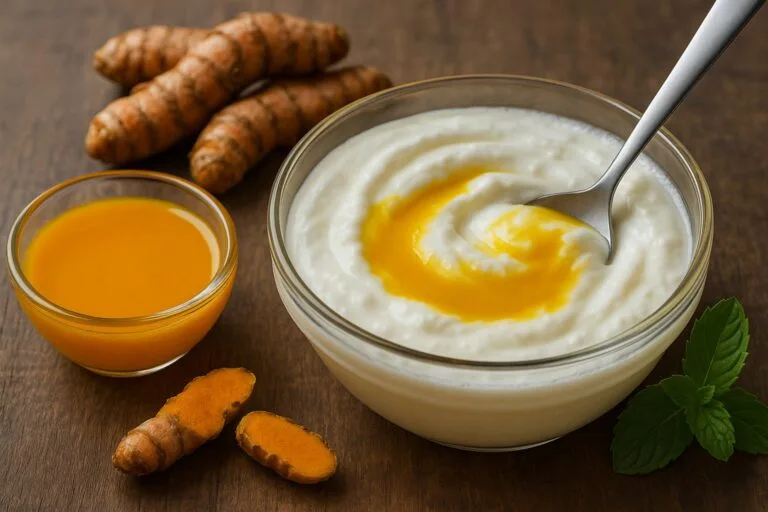Eczema Ayurvedic Treatment: Natural Remedies for Skin Healing
What is Eczema?
Eczema, also known as dermatitis, is a chronic skin condition characterized by inflammation, itching, fluid-filled sores, and recurring flare-ups. It can significantly impact daily life due to constant discomfort and visible skin irritation.
Common Symptoms of Eczema
Eczema manifests with a variety of symptoms that can range from mild to severe:
- Persistent itching and burning sensation
- Fluid secretion from skin sores
- Throbbing pain in affected areas
- Recurrence of symptoms annually or seasonally
- General body weakness
- Occasional low-grade or intermittent fever
- In severe cases, skin damage reaching down to the bone
Major Causes of Eczema
According to natural and Ayurvedic understanding, eczema arises due to an imbalance in the following body elements:
- Disturbed chyle, blood, flesh, and fat (dhatus)
- Weak immune response from skin, blood, and fatty tissues
- Suppressed dysentery, often due to the use of strong astringent medications
- Accumulated toxins and internal heat
- Dysfunction of white blood cells, resulting in pus and fluid discharge
This internal struggle leads to continuous secretion from the sores and causes intense irritation and suffering.
Natural Ayurvedic Treatment for Eczema
Recommended Yoga Asanas
Morning Routine
- Diirgha Pranama (Deep Salutation Pose)
- Yogamudra (Psychic Union Pose)
- Bhujangasana (Cobra Pose)
- Agnisara Mudra (Fire Cleansing Gesture)
- Padahastasana (Hand-to-Foot Pose)
- Sheetali Kumbhaka (Cooling Breath Retention)
Evening Routine
- Matsyendrasana (Spinal Twist Pose)
- Utkata Vajrasana (Thunderbolt Squat Pose)
- Kurmasana (Tortoise Pose)
Best Diet for Eczema Patients
- Eat light, digestible, and nutritious vegetarian meals
- Avoid sweets, non-vegetarian foods, and intoxicants
- Drink plenty of water throughout the day
- Practice fasting on Ekadashi, Purnima, and Amavasya days
- Stay away from foods that cause constipation or dysentery
Lifestyle Tips and Dos & Don’ts
- Sunbathe the affected areas daily
- Do not scratch or irritate the sores
- Avoid chemical-based cosmetics and soaps
- Refrain from non-vegetarian foods and alcohol
- Use natural fabrics to allow skin to breathe
Effective Natural Remedies for Eczema
1. White Oleander Root Paste
Make a paste of Nerium odorum Soland roots in water and apply as an ointment on the sores.
2. Turmeric and Curd Mix
Mix raw turmeric juice with curd and consume 5 tolas (approx. 58g) daily.
3. Musabbar and Coconut Oil
Apply musabbar (aloe vera concentrate) mixed with coconut oil on the affected areas.
4. Lime and Coconut Oil Foam
Soak lime and coconut oil in a brass pot overnight. Beat into foam in the morning and apply to the skin.
5. Sulphur and Soot Ointment
Grind sulphur and coal soot with coconut oil into a paste and use as a soothing ointment.
6. Kelekonra Leaf Paste
Grind Kelekonra leaves with tobacco pipe water to create a healing paste.
Bandage the area using betel leaves soaked in coconut oil or cow’s ghee for additional relief.
Final Thoughts
Eczema is a painful and often persistent skin condition, but it can be effectively managed through proper diet, yogic practices, lifestyle changes, and natural remedies. Avoid suppressing other diseases like dysentery that could weaken your immunity and make you vulnerable to skin disorders. Patience and consistency in holistic care are key to healing eczema from within.
“Find natural methods and herbal remedies for syphilis treatment.”
“Comprehensive guide to natural rheumatism treatment with herbs and diet.”
Frequently Asked Questions ✅
Q1. What causes eczema according to Ayurveda?
Ans: In Ayurveda, eczema is called Vicharchika, mainly caused by imbalance of Pitta and Kapha doshas. Poor digestion, excessive consumption of spicy, oily, or incompatible foods, stress, and toxin (Ama) accumulation are common triggers.
Q2. Can Ayurveda permanently cure eczema?
Ans: Ayurveda may not always guarantee a permanent cure, but it helps manage symptoms, reduce flare-ups, and control itching and inflammation by balancing doshas, detoxifying the body, and strengthening immunity.
Q3. Which Ayurvedic herbs are useful for eczema?
Ans: Herbs like Neem, Turmeric, Manjistha, Guduchi (Giloy), Aloe Vera, and Triphala are effective in reducing skin inflammation, purifying blood, and soothing itching.
Q4. What home remedies are recommended in Ayurveda for eczema?
Ans: Applying neem oil, coconut oil, turmeric paste, or aloe vera gel can relieve itching and dryness. Drinking herbal decoctions of Triphala or Guduchi also helps cleanse toxins and improve skin health.
Q5. What diet should eczema patients follow according to Ayurveda?
Ans: Ayurveda recommends a Pitta-pacifying diet with fresh fruits, leafy greens, whole grains, and cooling foods like cucumber and coconut water. Patients should avoid spicy, sour, fermented, fried, and processed foods.
Trusted External Resources
For more information on Ayurveda, yoga, and natural wellness, explore these authoritative resources:
